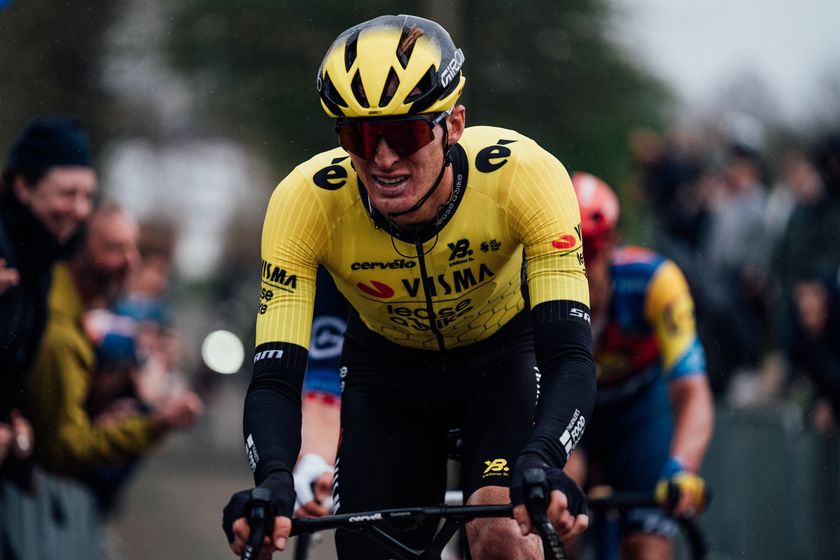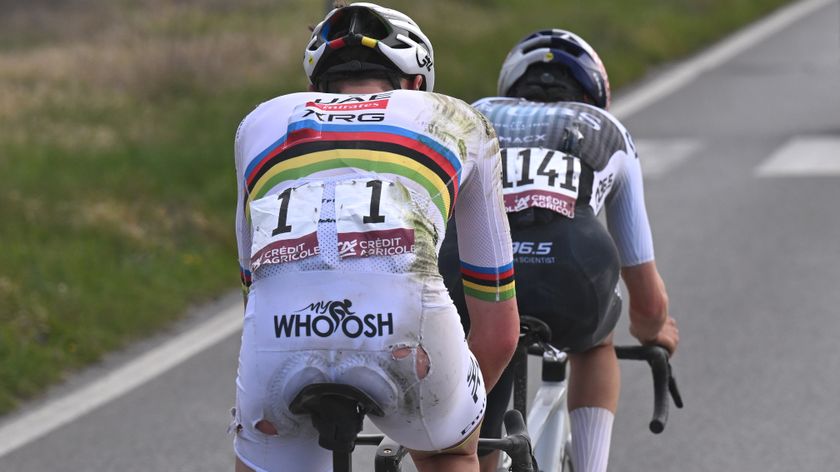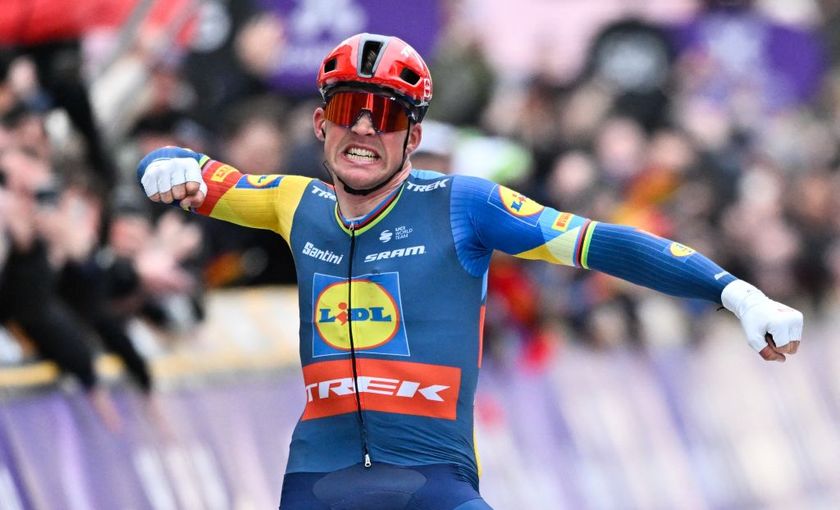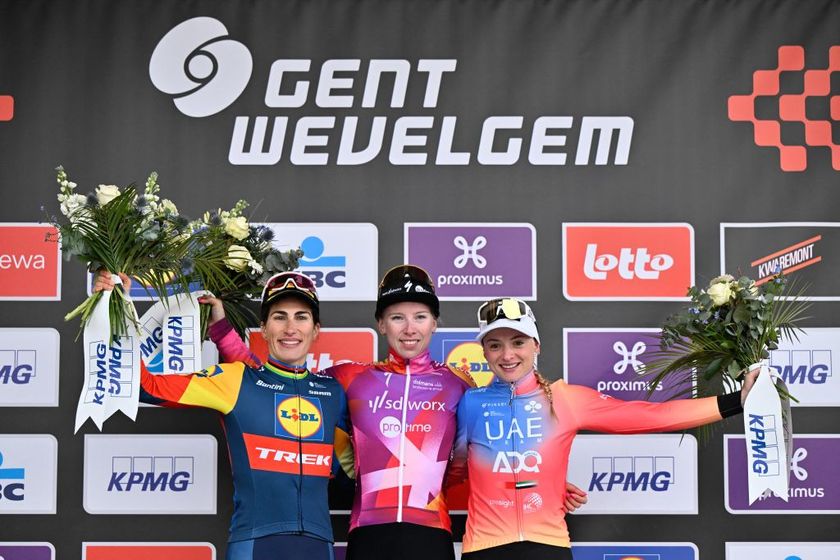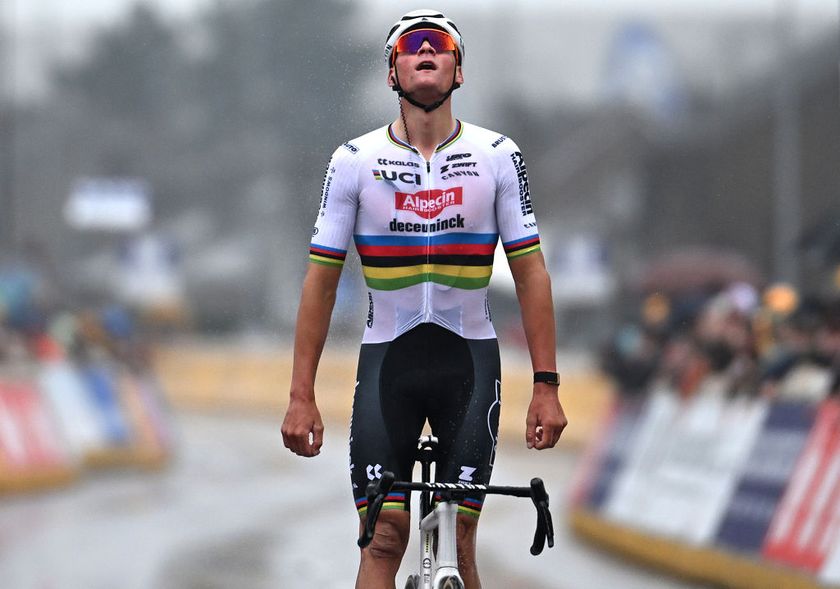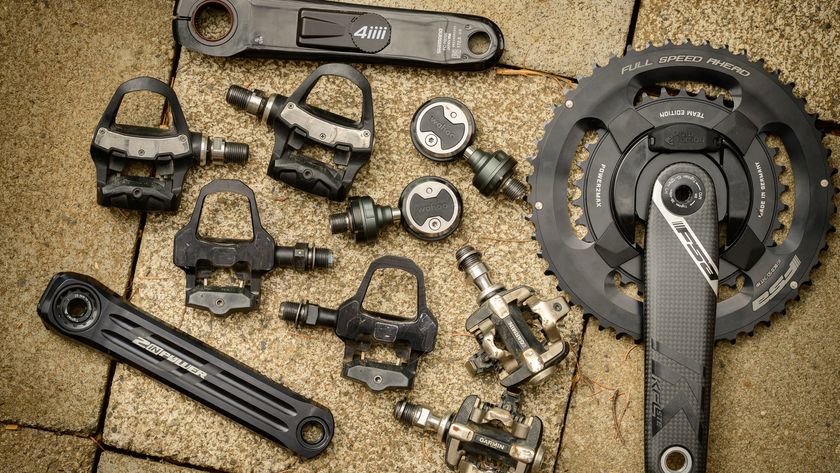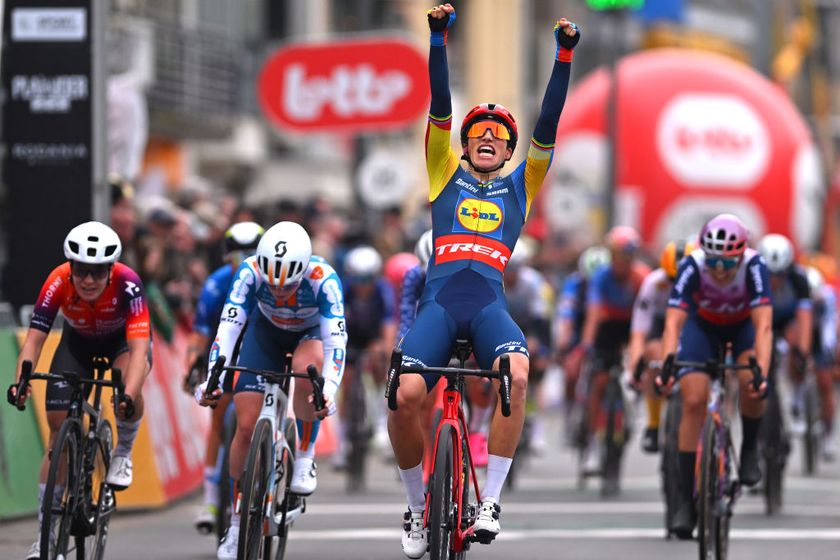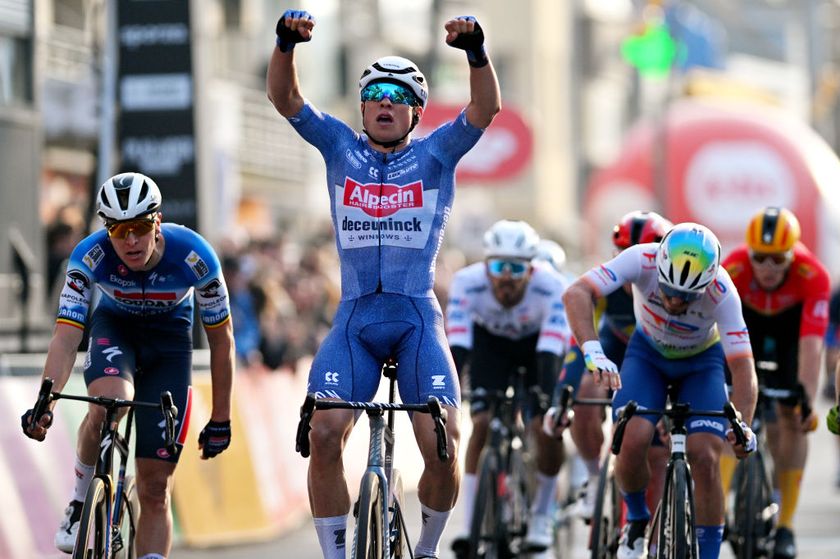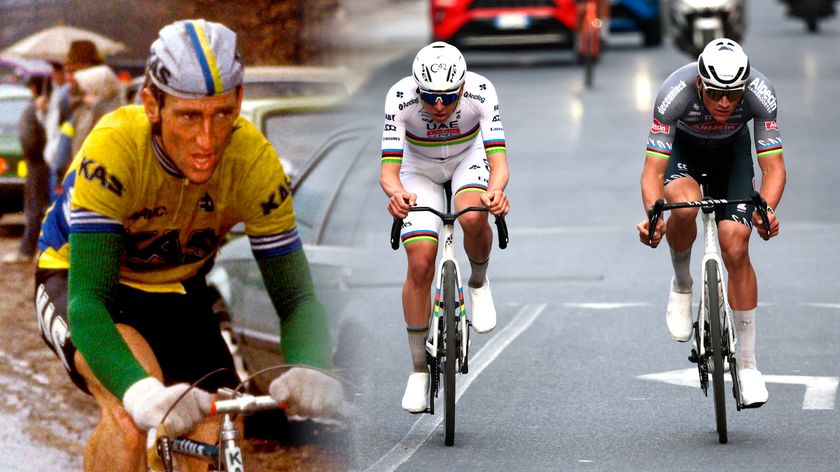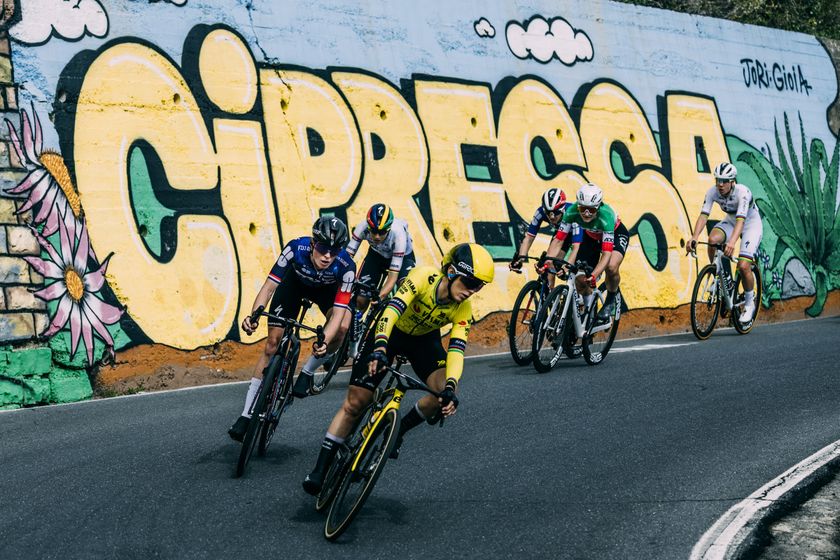Angry Wiggins sees hope in new generation
At the National Cycling Centre in Manchester, England on Friday morning, World and Olympic Pursuit...





An interview with Bradley Wiggins, July 28, 2007
At the National Cycling Centre in Manchester, England on Friday morning, World and Olympic Pursuit Champion Bradley Wiggins spoke to the British media two days after he was forced to leave the Tour de France after his Cofidis teammate, Christian Moreni tested non-negative for testosterone.
"I wouldn't say I'm bitter," He replied when asked. "I'm angered by it and it's made my determination to come through this whole thing and to prove that there can be clean winners in this sport."
He's not alone in his anger either, but sees the push towards a cleaner sport being spearheaded by the younger generation of riders who haven't grown up in the old school doping culture. "A lot of others I've spoken to in the last 24 hours - I've spoken to Geraint Thomas who's still out there on the Tour de France, Mark Cavendish - and they're all pretty pissed off as well. I still believe that there is a minority out there who are willing to push the boundaries - that minority all seem to be over 30 years of age - coming toward the end of their careers - I think that show's a generational thing.
"Ten years ago it was rife in the sport and there's a new generation coming through now and unfortunately it's the older guys who were there back in 1998 that are still willing to push the boundaries and see how far they can go without being caught," he continued. "Hopefully the new generation that are coming through - the guys you saw protesting on the line are the guys that are going to be the future of the sport and the Tour de France."
Wiggins spoke out against the hero worship of some of the big stars, those who - like Alexandre Vinokourov (Astana) - now have their entire careers looked upon with suspicion. "These guys are looked upon as heroes to some young guys - but for me they're not the heroes of the Tour de France - they never were for me," he declared.
Instead, he hailed the contribution to the sport made by the lesser lights, the domestiques and those struggling in the autobus [the group of riders banding together to avoid the time cut] everyday, particularly the youngest rider on the race - his British Cycling track teammate Thomas. "I spent a lot of time in the group finishing an hour down most days and that's where the heroes are for me," he said. "Guys like Geraint Thomas, 21 years old - for the last two weeks I've watched him drag himself through the Alps and the Pyrenees on nothing but bread and water. For me they are the real heroes of the Tour de France - not the guys on the million Euro contracts who are being done for blood transfusions and things like that."
Get The Leadout Newsletter
The latest race content, interviews, features, reviews and expert buying guides, direct to your inbox!
Despite the efforts made by Cofidis and many other teams to ensure their riders are clean, he still feels that this is contrary to the system that riders are forced to negotiate. "I'm at the end of my contract with Cofidis coming to negotiate, next year for example with Cofidis, I'd asked for a figure for example off my team manager," started Wiggins. "And he said, 'You didn't win the Prologue and you were fifth in the time trial,' and I'm like, 'But I'm clean, would you rather I take risks and win the prologue and win that time trial and not get caught and then would you be paying me the million Euro contract for next year?' So there's all these things that go into account you know, that was all pissing me off to be honest."
As many others are beginning to say, the Olympic champion also feels that a disproportionate amount of the pressure is put on riders to be whiter than white, while teams and their managers don't have the same concerns. He singles out one particular team for specific criticism: "I think the team managers have to take responsibility for this as well because they're willing to pay these guys who are under suspicion and have been involved in previous years in doping scandals. Ivan Basso, last year got thrown off the Tour is disgrace - [Discovery Channel's Johan] Brunyeel this year goes and signs him on a million Euro contract.
"The hypocrisy in that is unbelievable," Wiggins stated. "These guys are running some of the biggest professional cycling teams in the sport. What's their motivation within the sport if they are willing to sign someone who they knew was under investigation of who had been thrown out of the Tour the previous year. Not every team manager thinks that way but it seems that there is a minority out there who aren't willing to play by the rules - including the team managers."
Despite his major worries about the commercial side of the sport, Wiggins is less worried about coming up against a level playing field in Beijing next summer. "Well, I think the Olympics is a different kettle of fish to be honest. The IOC is very strong and has taken a stronger stance on doping in the past, much more so that the UCI."
But he does see things improving, with the net closing in on those who still choose to go outside the law: "Pat McQuaid has been left with a very difficult job and has been left with a lot of dead wood from 10 years ago," said Wiggins. "But he seems to be going about it in the right way, we seemed to be tested every other day, we gave blood and urine on the stages, which is how Vinokourov was caught. I think that's reassuring. It may have tarnished the sport but for me, that guy's gone and I've moved up a place in the time trial. For the clean athletes, it's great that the testing procedures are working."
Wiggins doesn't plan to be lining up for the Tour's Grand Depart in Brest next July, he will be concentrating on his build up to defend his Olympic pursuit title in Beijing but hopes to be back the year after and expects the climate to have changed for the better. "Hopefully by then, the Tour will have taken a different shape," said an optimistic Wiggins. "Hopefully the credibility will have been restored where you'll be riding the tour with credible UCI Pro Tour teams."
Once again he singled out a British rider, and hoped that, as clean rider he'd achieve better results with dopers forced out of the sport. "You might not have the big names like Vinokourov or Rasmussen but you might be talking about younger riders, clean riders like Charlie Wegelius who's up in the top 40 and is a tremendous climber yet perhaps isn't able to shine like the other pure climbers like Rasmussen because he's not doing what they're doing," he said. "Hopefully in two years time when I return to the Tour I might be the Prologue winner or I might win the Time Trial and be a credible Time Trial winner because I haven't beaten someone by two and a half minutes. Credible, clean riders are what's gonna be the future of the sport."
The immediate concern for Wiggins personally though, is whether he will have a job this time next week. His team has been through the doping mill once before in 2004 when many of its stars, including compatriot David Millar, were found guilty of doping. A second scandal in the team may push a patient sponsor too far. "I don't know what's happening with the team for a start," he admitted. "There'll be an announcement on Monday whether Cofidis is continuing or not."
If the team should fold, and an attractive contract with the right team doesn't appear, Wiggins will simply return to his roots and make his living back in the domestic scene. "I still enjoy riding my bike, I'm not gonna stop riding my bike," he said. "I might get back into the British racing scene, do some club 10s. I enjoy doing it, I enjoy the people doing it, I enjoy their company. It's been a long year and I'll see the next few months out and then attention turns to Beijing next year."
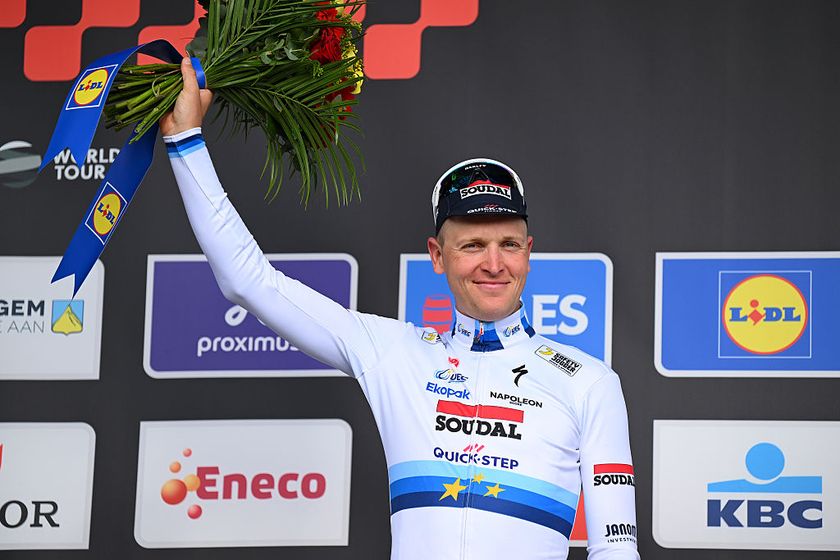
'The best result we could have done' – No regrets for Tim Merlier and Soudal-QuickStep at Gent-Wevelgem despite criticism over chase
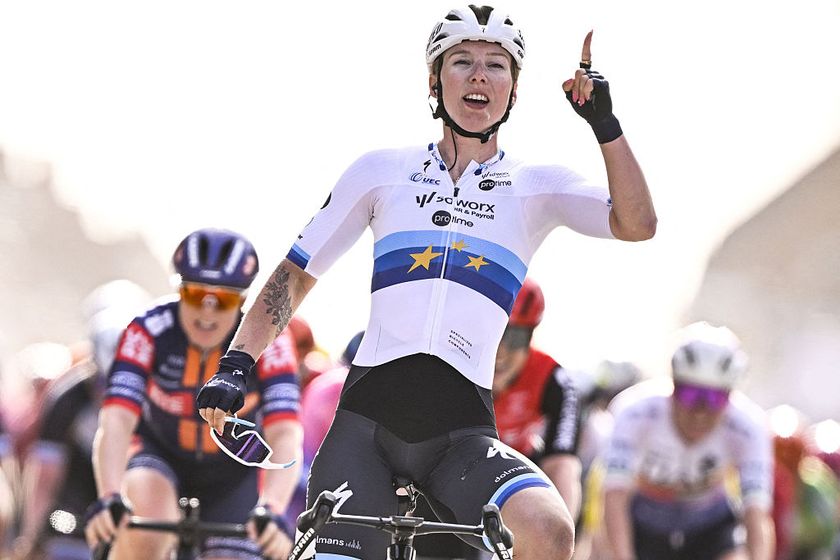
'She is insane' – Lorena Wiebes ticks off 100th victory with Gent-Wevelgem win
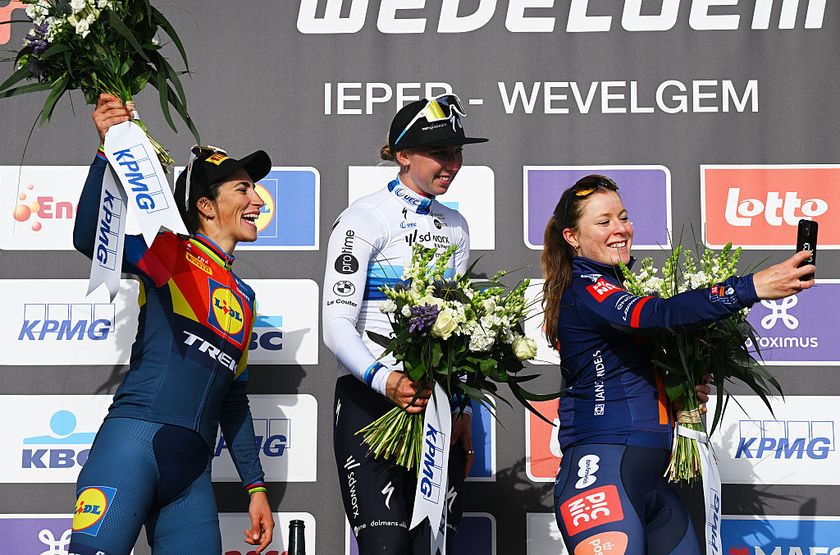
'She is the strongest right now' - Elisa Balsamo second to Lorena Wiebes in Gent-Wevelgem
